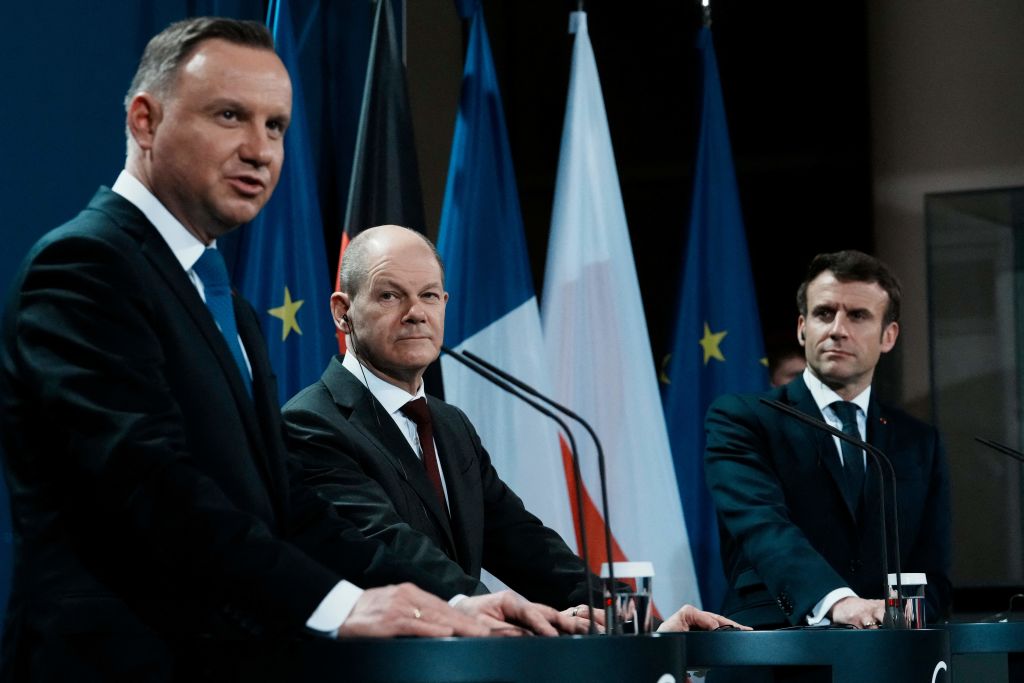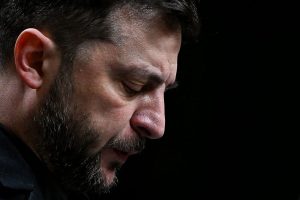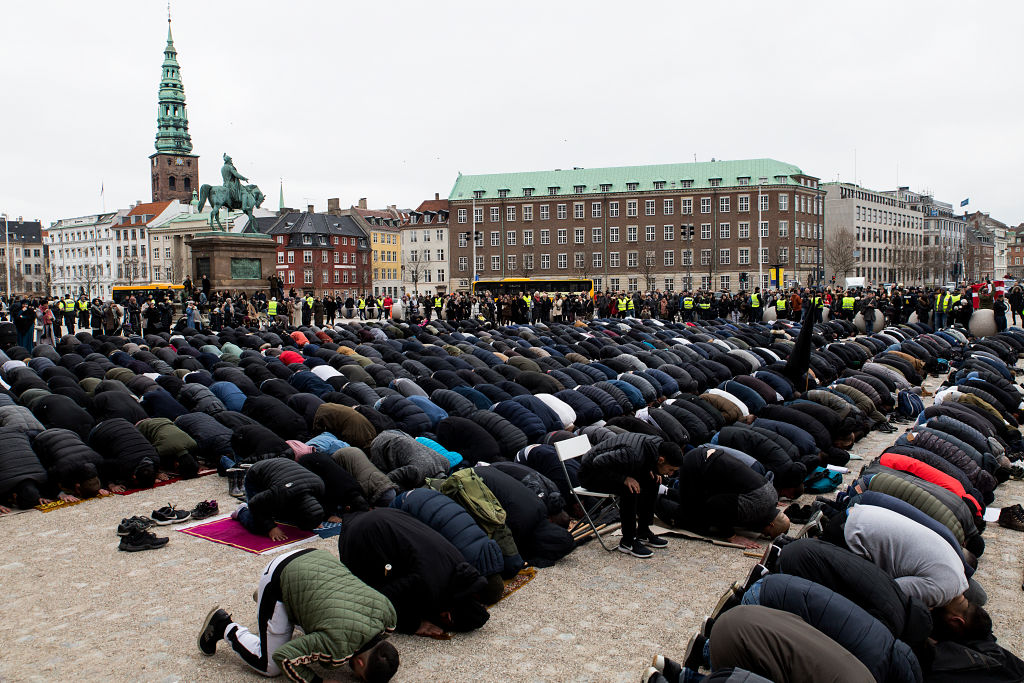Any analysis of the Ukraine situation risks lagging behind the news. As of the time this article was published, Russia had conquered the former Chernobyl nuclear power plant. Its forces are only about sixty miles away from Ukraine’s capital, Kyiv, which has already experienced shelling. Russians have also attempted to capture Antonov International Airport, just fifteen minutes away from the capital’s ring road.
Meanwhile, European leaders are resorting to the usual responses: “concerned,” “strongly condemning.” There is even a Twitter account mocking the EU’s approach to all major crises, called “Is EU Concerned?” The response to the invasion of Ukraine is not spared from similar mockery.
Here in Europe, it feels like 1938 all over again. When Hitler laid claim to Czechoslovakia, the UK and France had a decision to make; they chose to comfort themselves in the delusion that Hitler was merely claiming those areas that he considered ethnically German. Declaring war on Nazi Germany for the mere purpose of fulfilling assurances to an economically insignificant country was not on the agenda. Two years later, the war came to Europe anyway. In 2022, nobody wants to be Neville Chamberlain, but it is also true that this time around the stakes are even higher.
The nuclear arsenals of the Western and Eastern blocs, as well as NATO, have drawn a clear red line. The line extends from the Baltics (Lithuania, Estonia, Latvia) down to Poland, Slovakia, Hungary, and Romania. Across the Black Sea, it also includes Turkey. It does not include Ukraine, despite the repeated ask by Kyiv to join NATO.
The push by the Ukrainian government to gain access to NATO membership has been rejected on the basis that it would serve as a provocation to Russia. Both the European far-left and far-right have echoed this argument since the Ukrainian revolution in 2014 that ousted pro-Russian president Viktor Yanukovych. Yet it has now been exposed as a myth: Putin has made it abundantly clear that he does not regard Ukrainian statehood as legitimate, and that this is a fight for national pride and unification rather than geopolitics.
“Ukraine actually never had stable traditions of real statehood,” Putin said in a statement, presumably excluding the many years during which the country had an overtly pro-Russian regime. If Putin’s ambition is to reunite Russia to the former Soviet Union, then Ukraine is only the next domino in the game he has been setting for decades.
Early this year, Russia intervened in Kazakhstan as the pro-Russian regime there faced protests. In 2014, Russia annexed the Crimean peninsula, despite European protests and sanctions. In 2008, Russia fought a war against the Republic of Georgia, which resulted in the ongoing occupation of Georgian territory through pretend breakaway republics that serve as Russian satellite states.
To European leaders, the question of what to do about Russia’s invasion of Ukraine is not a question of whether to support Kyiv but of “how far will Russia go?” This grim realization, which the Ukrainians are awakening to right now, will influence the country’s relationship with the West for decades to come, should it fight off the Russian invasion. The latter appears unlikely — if Moscow were to follow through with plans for a complete occupation, Ukrainian forces would be heavily outnumbered.
What options are on the table? A ceasefire is the ultimate ask for Europe, but at this point Putin has little incentive to agree so long as the West is not prepared to defend Ukraine militarily. If the invasion is only partial, then it will fracture Ukraine, potentially paralyzing it. Here again, Putin likely sees himself as better served with all rather than just a few pieces of the country whose statehood he denies. Whether or not Russia would install a regime friendly to itself, or just annex Ukraine, is nothing but a formality for European geopolitics; the fact that Belarus has become a staging ground for Russia’s invasion shows that, militarily, there is no difference between “Russia” and “friendly to Russia.”
In the European Union, one leader’s ambitions will be particularly hampered by this new crisis: Emmanuel Macron. The French president, not long ago, declared NATO brain-dead in an effort to make his case for a European army. If Russia is successful in its military campaign, NATO will instead be more relevant than ever.
Ironically, the scenario of having a enemy force even closer to its doorstep — the reason for which Ukrainian accession to NATO has been rejected politically — is now a real possibility for Europe. Vladimir Putin is making a bloody and destructive move on the European chessboard. If he manages to set down his piece, an excruciating waiting game is about to begin.

























